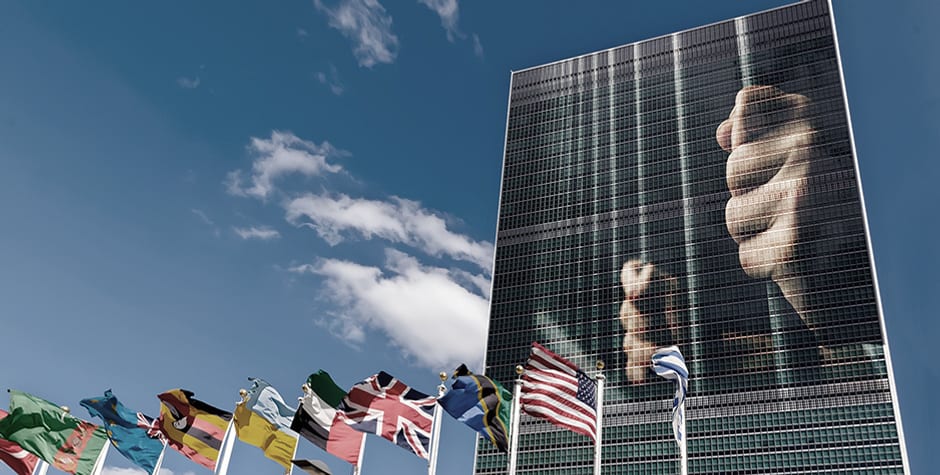Intervening at the UN Human Rights Council on Behalf of a Christian Falsely Accused of Blasphemy in Pakistan
Blasphemy laws and their abuse are still a big challenge in Pakistan. Many false accusations continue to surface, mobs threaten to kill the accused, and the justice system is failing to provide due process of law, even after the Government of Pakistan stated that blasphemy laws will not be misused.
One case that has been ongoing for more than four years is that of Shahzad Masih. Shahzad, a Christian, was accused of blasphemy against the Prophet Muhammad by his Muslim co-worker. In addition to having already spent more than four years in jail, if convicted, Shahzad will be sentenced to death.
We have just filed a critical submission with the United Nations Human Rights Council (HRC) – through our international affiliate, the European Centre for Law and Justice (ECLJ) – to urge Pakistani authorities to look at this case impartially and assure justice is done and Shahzad is released. The submission points specifically to the fact that even the prosecution’s accusations against Shahzad do not constitute blasphemy under Pakistan’s law. This case is the epitome of a travesty of justice.
Over four years ago, in July 2017, Shahzad was at work when a Muslim co-worker, who is a member of a fanatic religious group, started a religious conversation. He told Shahzad about Muslim prophets and asked him questions about the Christian prophets. Shahzad responded that he did not know much about religion. During the conversation, Shahzad stated that a friend of his father swears whenever he hears that someone has Muhammad in his name. Later, the co-worker had Shahzad brought before dozens of members of the fanatic group where they asked him to repeat the words his father’s friend uses. Even though Shahzad’s response did not constitute blasphemy, the police registered a blasphemy case against him.
During the trial, all the witnesses testified that Shahzad had told them what his father’s friend says. Furthermore, the investigating officer testified that he did not find Shahzad guilty in his investigation, and that no eyewitness heard any insult against the Prophet Muhammad in Shahzad’s conversation.
The case is simple, as Shahzad is obviously innocent. However, the biggest concern is that the trial court will not succumb to social pressure. It is well known that trial courts in Pakistan generally convict those accused of blasphemy, regardless of the lack of evidence against them. This often happens due to the pressure courts are under from angry mobs.
It is our hope that the trial court would not give in to social pressure and will actually protect an innocent life. Pakistani courts have often quoted William Blackstone in stating that “it is better that ten guilty persons escape than one innocent suffer.” The trial court should not let this legal maxim be a superficial veneer on the Pakistani courts’ opinions, but apply it as one of the foundational principles of the criminal justice system, which it is supposed to be. To convict an innocent Christian under mob pressure would render this maxim useless and render the Pakistani justice system a system of injustice.
The government of Pakistan is able to protect its citizens, especially in its courts of law, from enraged mobs that make a mockery of the government’s authority. Only when the courts impartially provide due process to all citizens, even those accused of blasphemy, will the Prime Minister of Pakistan’s promise to make Pakistan a country where religious minorities are protected and the rule of law prevails be fulfilled.
This is just one of the cases we presented in the most recent round of U.N. HRC filings regarding the situation in Pakistan. We will provide updates on the others in subsequent posts.
